How a Swiss company is navigating the crisis in Sri Lanka
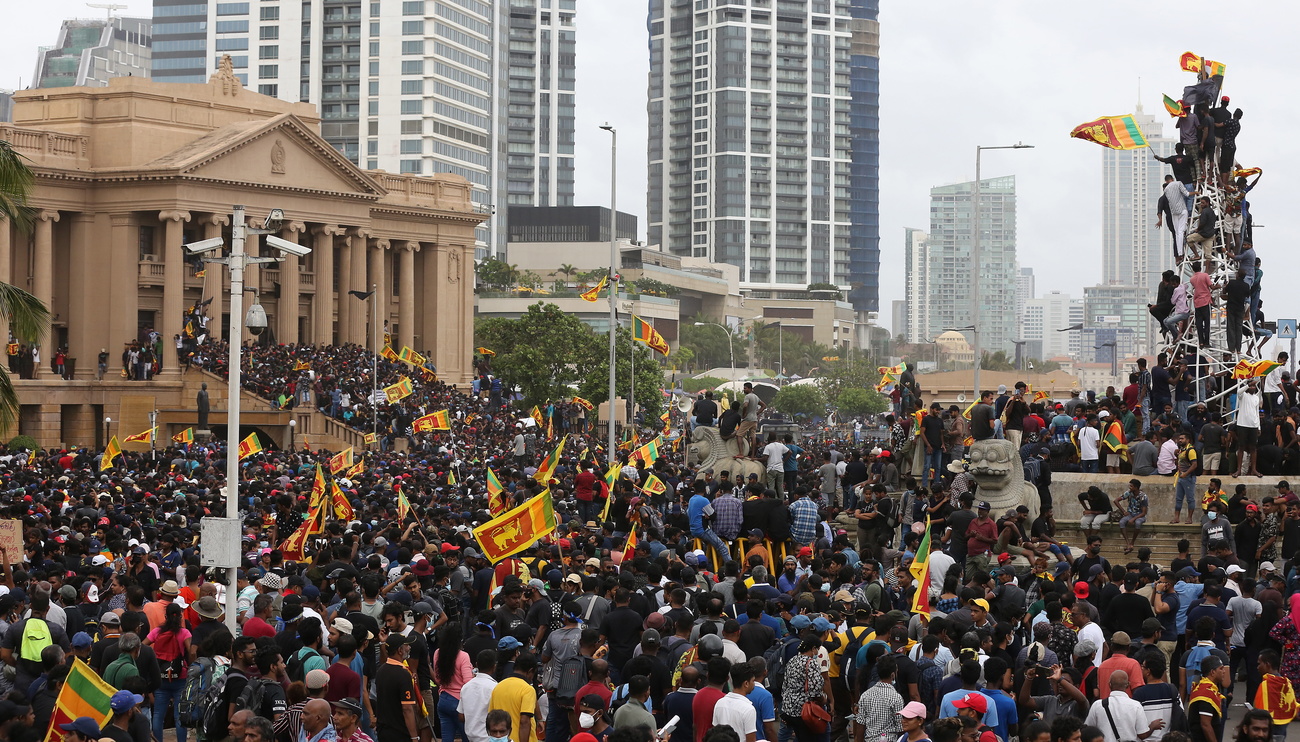
Rolf Blaser is the CEO of a Swiss-Sri Lankan company and lives next door to the president’s former residence. SWI swissinfo.ch spoke to him about the situation on the ground.
SWI swissinfo.ch: The country is bankrupt, and President Gotabaya Rajapaksa has officially resigned. In your view, how could it come to this?

Rolf Blaser: Sri Lanka’s downfall started with the Easter Sunday terrorist attacks in 2019. It devastated the country’s tourism industry which is one of its biggest sources of income.
Just when tourists were ready to come back, Covid-19 hit and two years later Russia launched its war against Ukraine. Tourists from Russia and Ukraine usually make up a large part of our visitors.
Other events exacerbated the situation in Sri Lanka. The government ran out of currency reserves, and the country went bankrupt. The crisis has led to a lack of essential items such as gas, oil, medicines and food.
A day before the protests in February, the president imposed a curfew. The protestors ignored it and occupied the presidential palace in a non-violent act of civil disobedience. The storming of the government buildings was the final blow for President Rajapaksa.
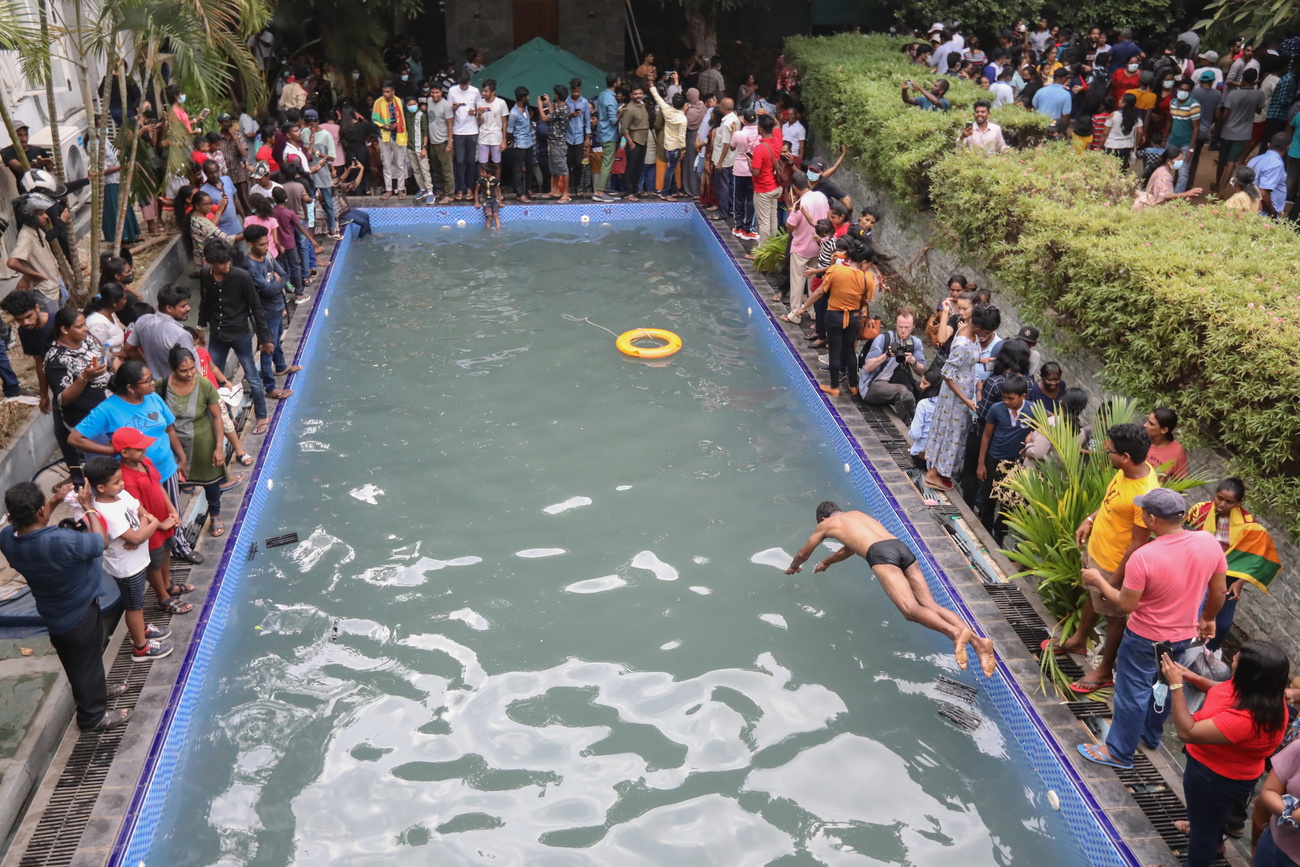
SWI: Agricultural productivity collapsed after artificial fertilisers were banned. A. Baur & CoExternal link, the conglomerate you lead, immediately started to produce organic fertilisers. Do you see a link between Sri Lanka’s crisis and the ban on artificial fertilisers?
R.B.: The ban came into force overnight in May 2021. The country was not ready to switch completely to organic fertilisers. Agricultural productivity collapsed and Sri Lanka could not grow enough rice to feed its own people.
When the ban was lifted at the end of November 2021, the government was short of dollars to import chemical fertilisers. On top of that, fertiliser prices skyrocketed. Russia, the world’s largest exporter of chemical fertiliser, was no longer an option, and China also stopped its exports. What has made matters worse is that India is experiencing huge crop failures due to an intense heat wave. They are no longer exporting food nor fertilisers.
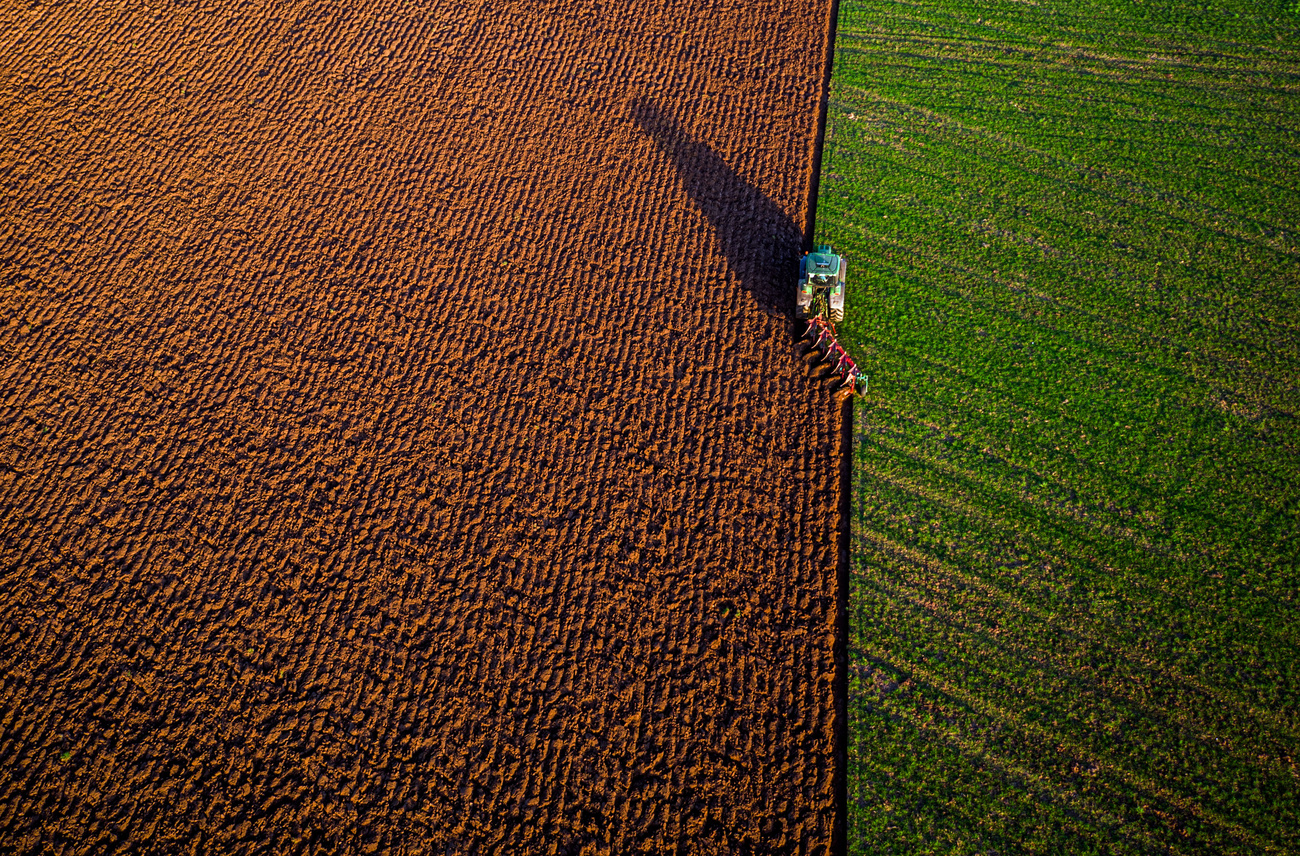
More
Is 100% organic farming a revolution too far?
SWI: What role does Sri Lanka’s debt with China play in the current crisis?
R.B.: China is often considered the culprit, but the problem is Sri Lanka’s excessive debt. It doesn’t matter whether the money comes from China, Japan or India. Of course, China can be tough in such situations, but at the end of the day it is Sri Lanka’s fault.
SWI: Fertilisers and healthcare are two lines of business of the A. Baur & Co. conglomerate. How’s your business going in this complex environment?
R.B.: To be honest with you, things are not looking too rosy. But our company has been operating in Sri Lanka for 125 years and has some financial reserves. We are not struggling to survive, but we are losing money.
Our healthcare sector runs at 80% capacity. Even though we have been unable to import certain medicines, this sector is doing well since we are able to import lifesaving medicines. We are in a fortunate position as we are given preferential treatment, whenever possible, because we import essential products.
It’s a bit different when it comes to fertilisers. The whole business has collapsed in the past 12 months. We are no longer dependent on government funds as fertiliser subsidies have been abolished. The small quantities that we sell are paid in cash.
SWI: How do you see the future?
R.B.: First and foremost, Sri Lanka must form a solid government. Once this is done, the International Monetary Fund (IMF) should grant the country a short-term bridging loan. This would also help Sri Lanka regain the confidence of other countries.
It is also important to fight corruption, which is a huge problem here. A lot will depend on who takes the top positions in the government.
SWI: The products sold at the weekly market are almost unaffordable. What does Baurs do to help its employees?
R.B.: We are one of the few companies that gave its employees a pay rise. Even though we cannot really afford it, we were able to increase salaries by 20%. This will not solve people’s problems, but it might reduce them. And whenever possible, we provide our employees with emergency rations. We probably do more than other companies and this is likely because we are part of a charitable foundation.
SWI: You have lived in the capital Colombo for five years. How has this crisis affected your private life?
R.B.: I can see what’s going on from my balcony and feel the dynamics. Thousands of people have taken to the streets and the size of the crowd is similar to that of the Zurich Street Parade. It can be unnerving when the protesters shout their powerful slogans, but I would like to stress that the protests have been peaceful.
People visit the presidential palace, which is near the business and residential compound of A. Baur & Co., as if it were a museum. Everyone wants to have a look.
Economically speaking, I am lucky as I am probably among the top 5% of earners in the country. Our standard of living has not changed, and I feel safe. I am just about to go for a bike-ride which is very enjoyable as there is hardly any traffic due to the fuel shortage.
Translated from German by Billi Bierling; edited by Virginie Mangin

In compliance with the JTI standards
More: SWI swissinfo.ch certified by the Journalism Trust Initiative










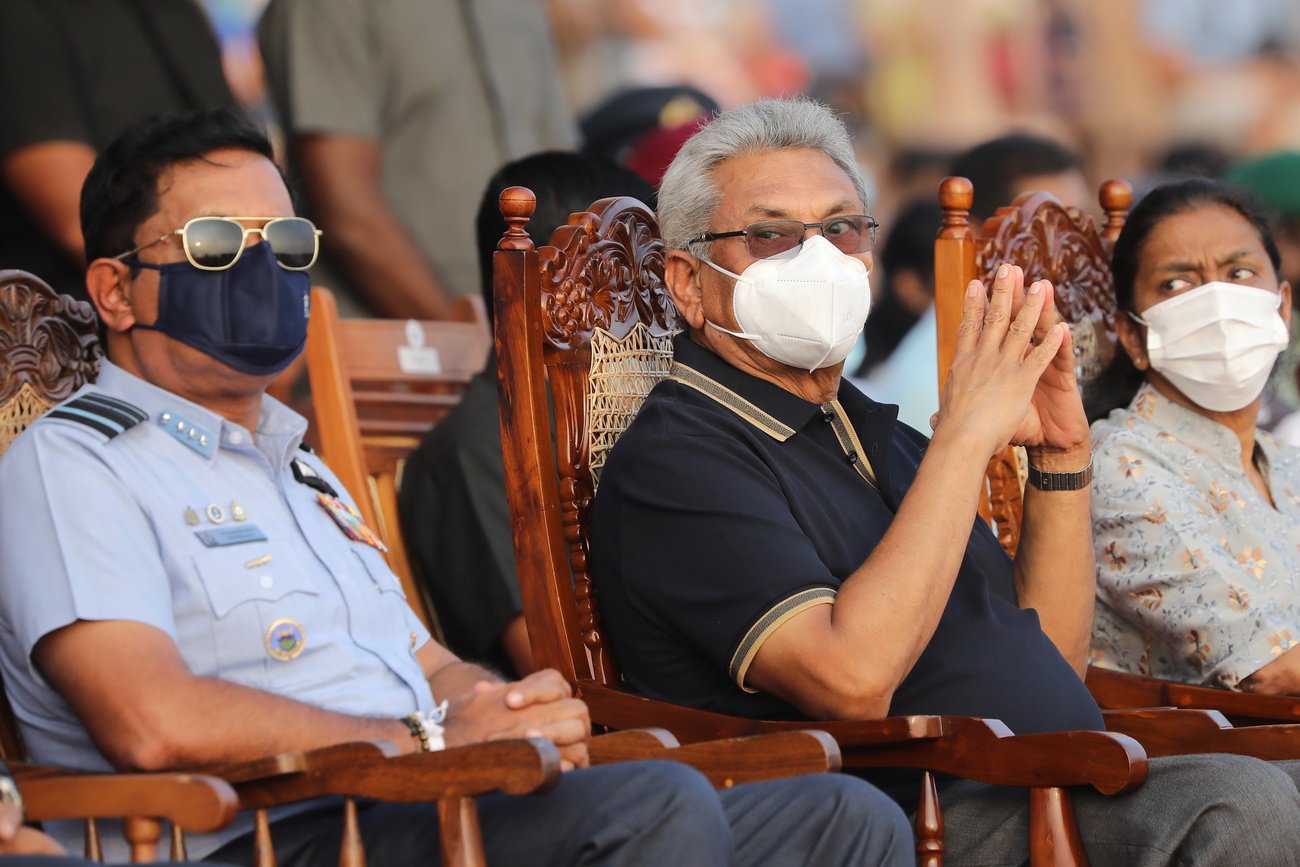

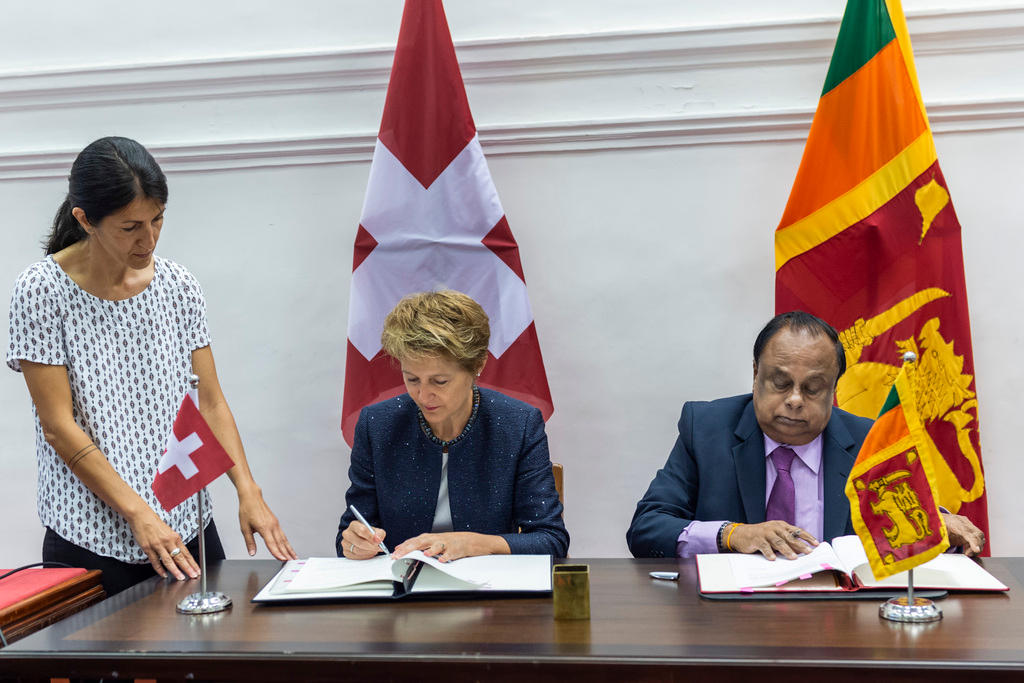

You can find an overview of ongoing debates with our journalists here . Please join us!
If you want to start a conversation about a topic raised in this article or want to report factual errors, email us at english@swissinfo.ch.